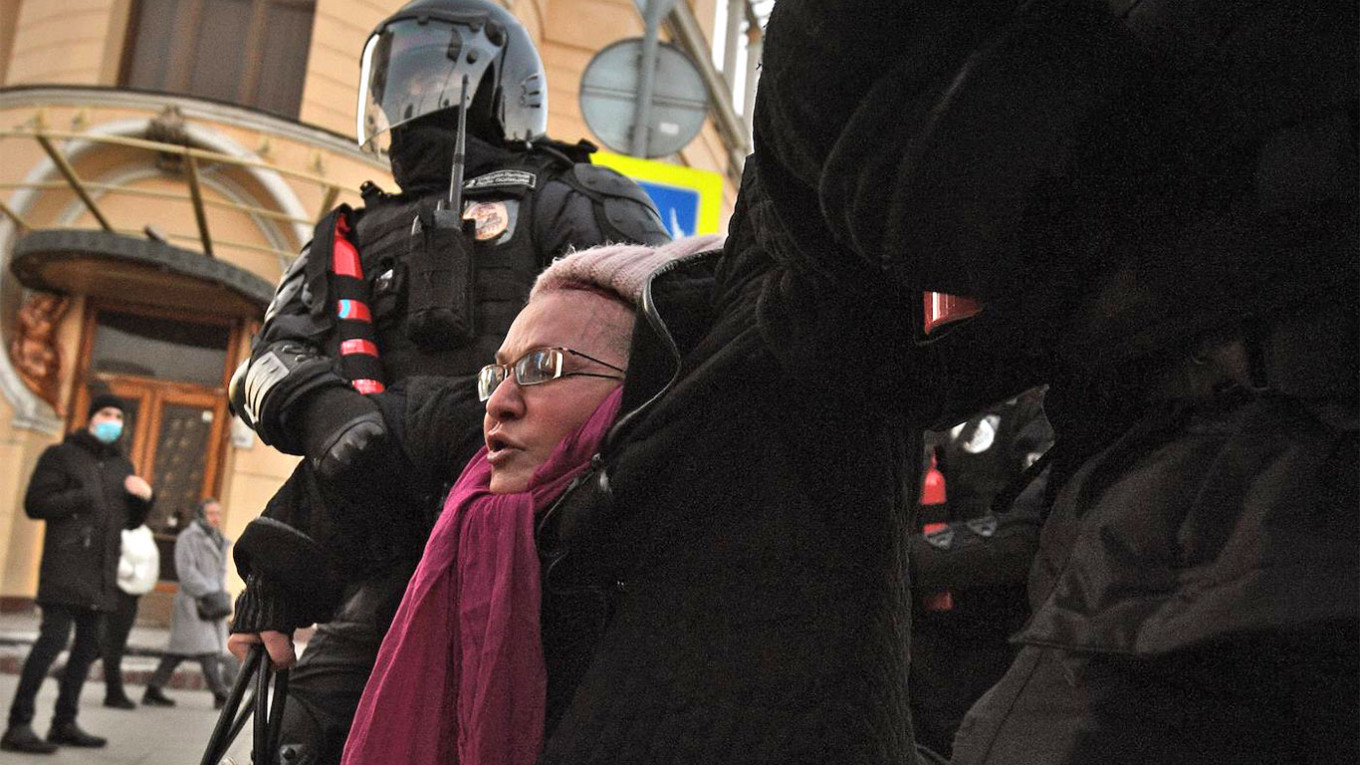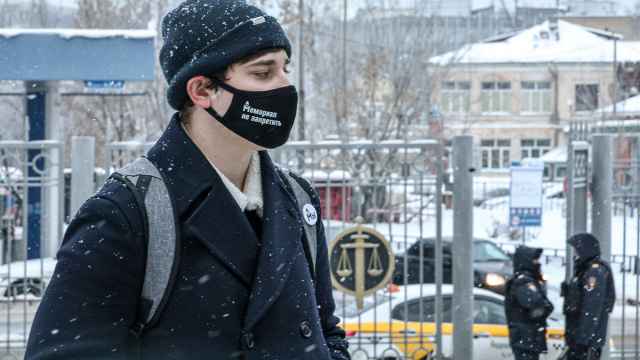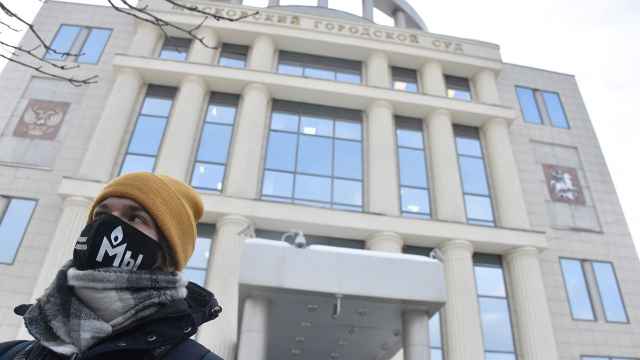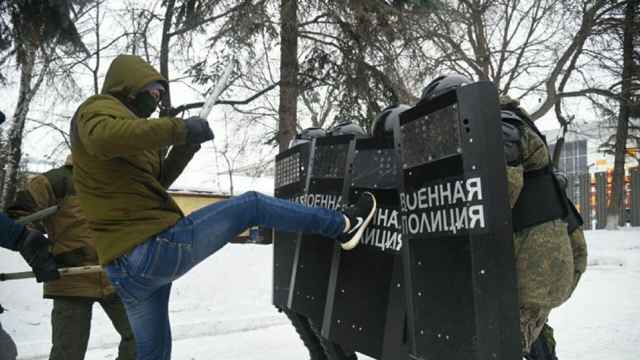Natalia Tikhonova was at an anti-war rally in Moscow’s Zaryadye Park, a few hundred meters from the Kremlin, when police detained her.
“Where are you taking me?” the 30-year-old mother with a young son asked as she was put inside a police van.
“To improve the gene pool of the nation,” a police officer replied. Tikhonova told The Moscow Times that she spent a night at the police station and was released the following morning.
Thousands of Russians have had similar experiences in the crackdown on anti-war protests that followed Russia’s invasion of Ukraine in late February.
The detention of Tikhonova, however, was technically illegal.
According to Russian law, women with children under the age of 14 cannot be detained by police for more than three hours.
But there has been a marked rise in the number of incidents in which mothers have been arrested for days or even weeks, potentially leaving young children in dangerous situations, human rights activists told The Moscow Times.
“This year we have seen some outrageous cases when mothers have had to spend a night at police stations,” said human rights lawyer Alexandra Baeva.
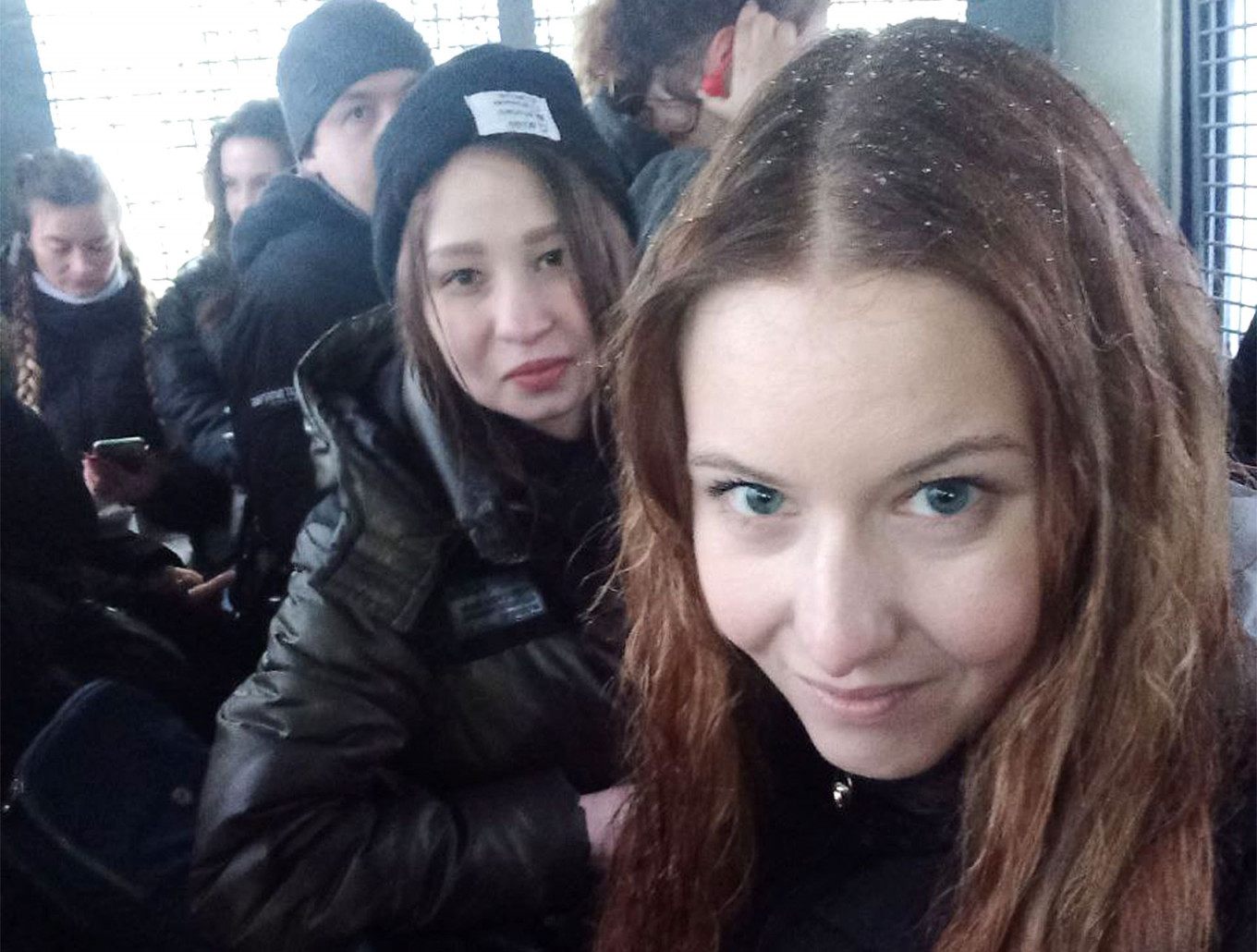
“It is a general trend. The police have been detaining people more often. The courts have been placing people under administrative arrest more often.”
Over 16,000 people have been detained in Russia for protesting against the invasion of Ukraine, 44% of whom were women, according to OVD-Info, a Russian human rights organization that specializes in helping those who face political persecution.
Many of these women have children who could find themselves left alone for long periods before another family member, or a state agency, can come to their assistance.
Tikhonova’s underage son had to stay the night with his grandmother while his mother was at the police station, she said.
At least 16 women with underage children have been detained for more than three hours since the start of the war in Ukraine, according to OVD-Info. Human rights activists said that the real number was likely to be considerably higher.
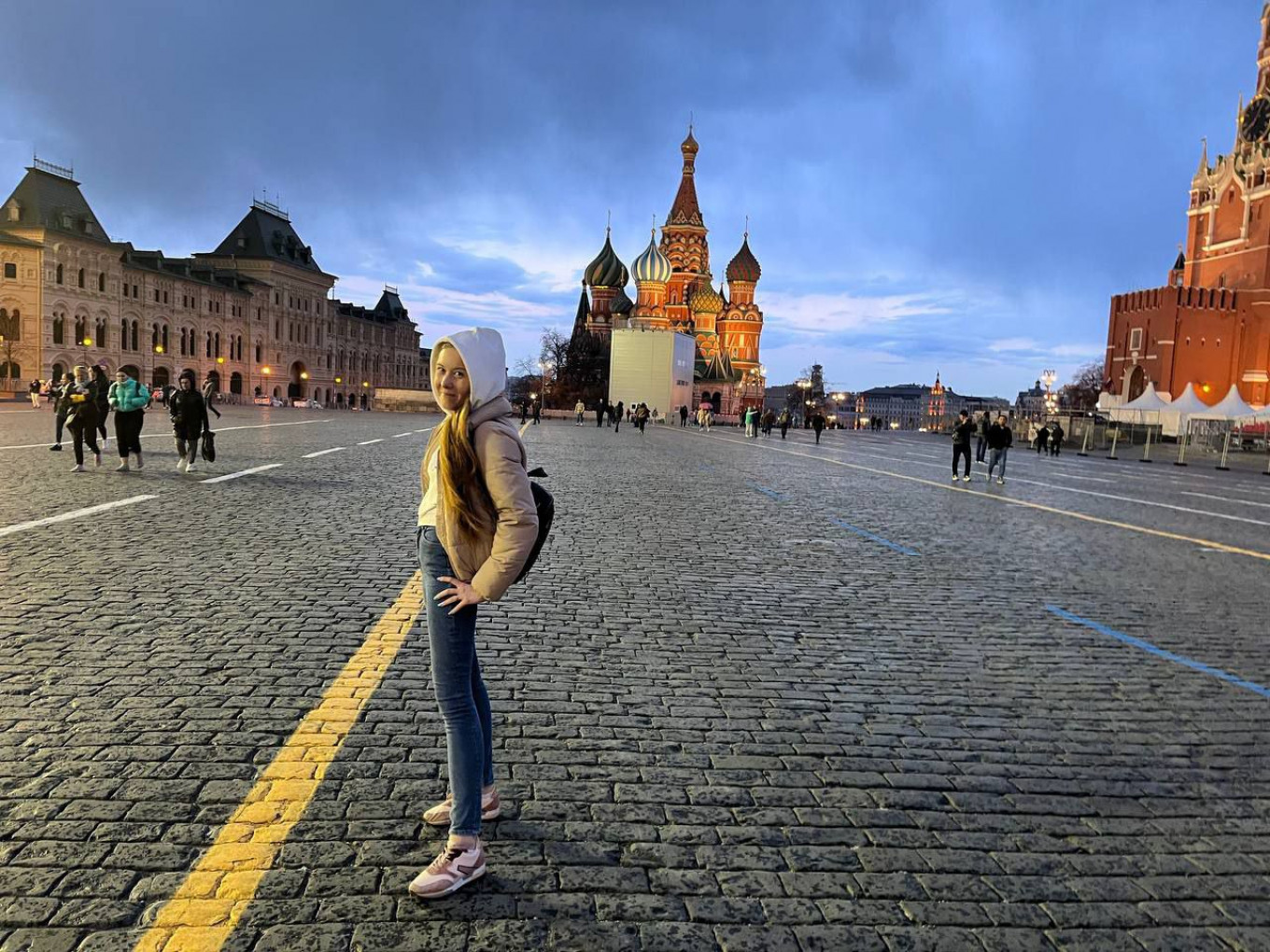
In one case, Yelena, a single mother from St. Petersburg, was arrested for 16 days after attending an anti-war rally. Her 10-year-old son had to stay with his aunt, she later told independent media outlet Glasnaya on the condition that her surname not be used.
“After I was freed, child services visited us several times,” Glasnaya quoted Yelena as saying.
Tikhonova told The Moscow Times that a police officer mocked her when she said she had an underage child, even though she showed a copy of her son’s birth certificate.
“They [later] claimed they had lost the copy,” she told The Moscow Times.
While the number of detentions of mothers with young children has risen rapidly since the beginning of the war, the number of such cases had been growing even before the fighting started, according to media reports and data from OVD-Info.
Activist Rada Slavkina told The Moscow Times that when she was arrested during an environmental protest near Moscow in February, she had to take her three-year-old son to the police station with her.
And opposition supporter Olga Komleva, from the city of Ufa in the republic of Bashkortostan, was arrested twice last year ahead of anti-Kremlin protests and obliged both times to spend a night at the police station – despite having an underage child.
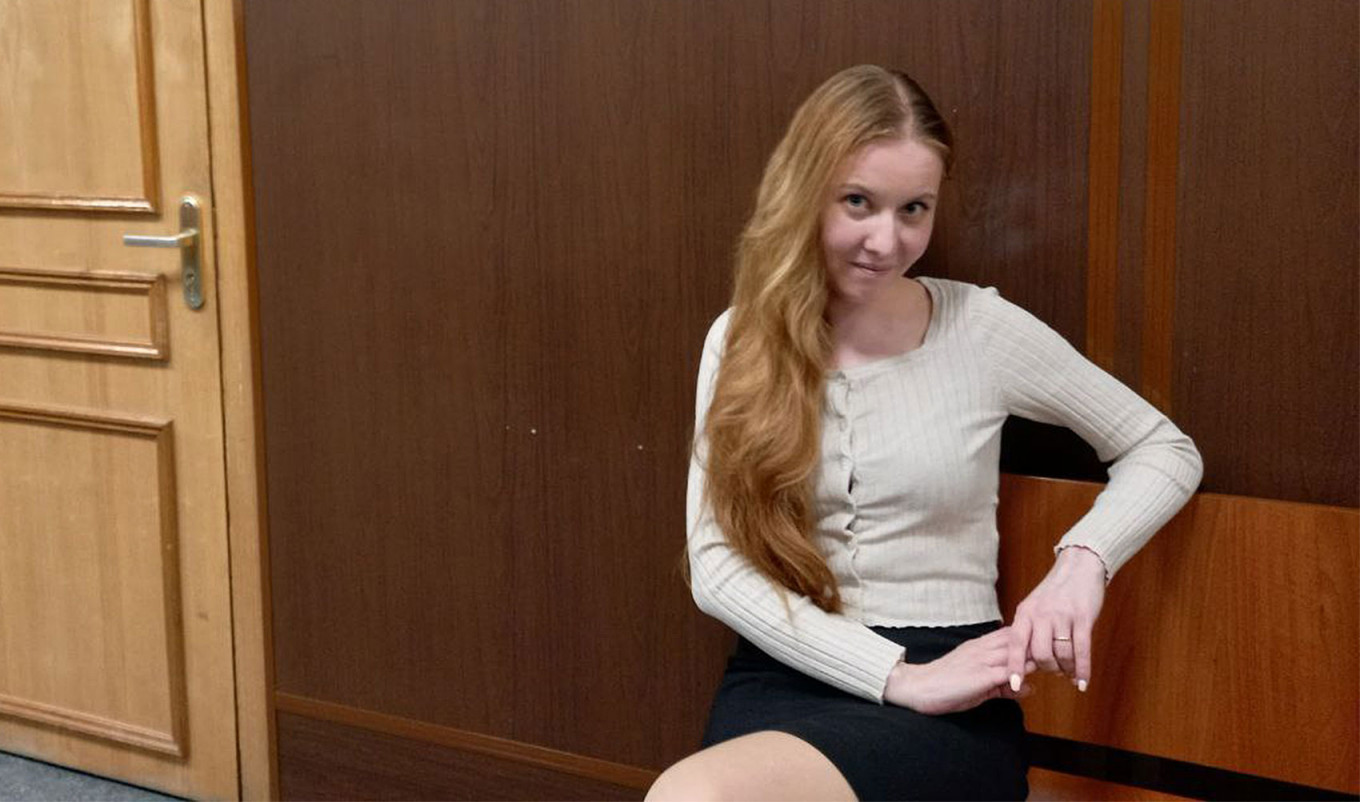
While mothers are, at least in theory, protected from lengthy detentions, Russian law has different provisions for fathers, who can be held for up to 48 hours.
“This is where our laws show sexism,” said human rights lawyer Baeva, who also works for OVD-Info.
“The only exception is when a father is the single breadwinner or he can prove that his child will stay alone should he be detained.”
Moscow’s expulsion from the Council of Europe in March over the invasion of Ukraine means there are fewer options than ever for Russians seeking to appeal against a rights violation, particularly when it comes to unlawful detention.
However, Baeva said, there are still some ways to seek redress.
“You need to document everything, to protocol everything, to appeal against the violations if the police make you stay at the station for the night,” she told The Moscow Times.
OVD-Info filed a report to the UN Committee on the Elimination of Discrimination Against Women in April that described cases in which mothers had detained for over three hours.
“UN Special Rapporteurs have the right to appeal to the authorities, ask questions and demand change,” said Baeva.
A Message from The Moscow Times:
Dear readers,
We are facing unprecedented challenges. Russia's Prosecutor General's Office has designated The Moscow Times as an "undesirable" organization, criminalizing our work and putting our staff at risk of prosecution. This follows our earlier unjust labeling as a "foreign agent."
These actions are direct attempts to silence independent journalism in Russia. The authorities claim our work "discredits the decisions of the Russian leadership." We see things differently: we strive to provide accurate, unbiased reporting on Russia.
We, the journalists of The Moscow Times, refuse to be silenced. But to continue our work, we need your help.
Your support, no matter how small, makes a world of difference. If you can, please support us monthly starting from just $2. It's quick to set up, and every contribution makes a significant impact.
By supporting The Moscow Times, you're defending open, independent journalism in the face of repression. Thank you for standing with us.
Remind me later.



